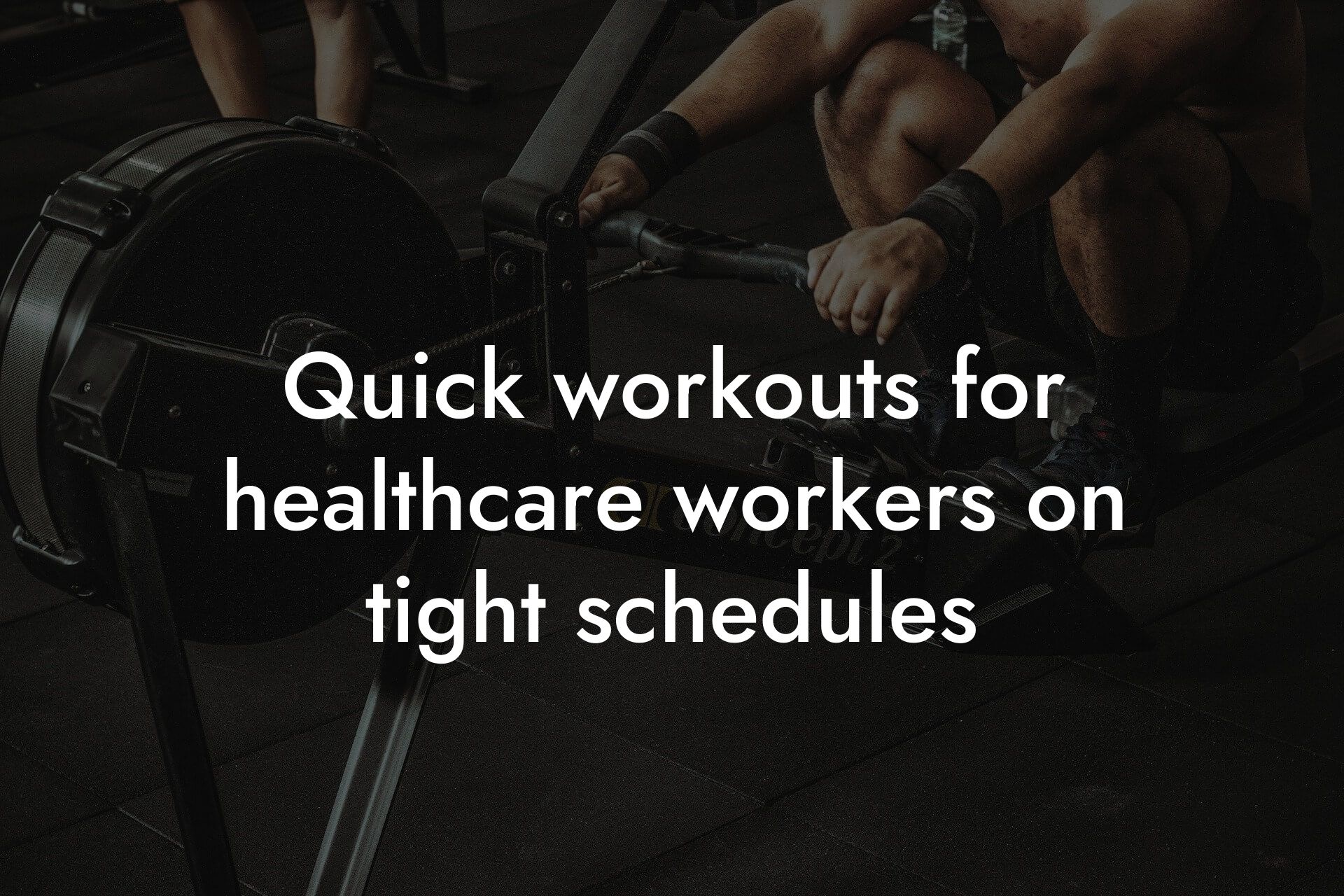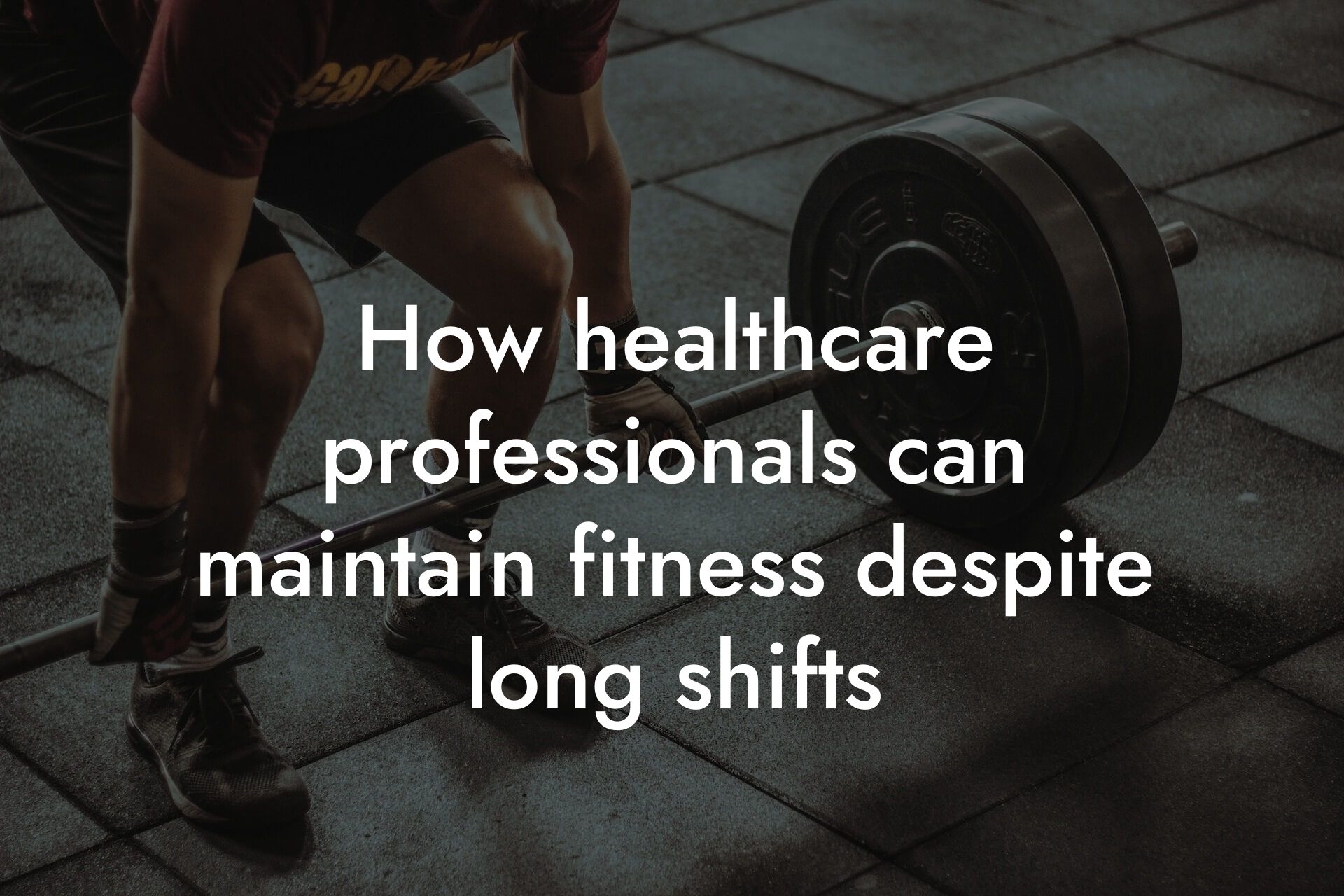As healthcare professionals, it's essential to recognize the significant role physical health plays in patient care. A patient's physical well-being can greatly influence their overall health, recovery, and quality of life. In this article, we'll delve into the importance of physical health in patient care, exploring the ways in which it affects treatment outcomes, patient satisfaction, and healthcare costs.
Table of Contents
- The Connection Between Physical Health and Chronic Diseases
- The Role of Physical Health in Mental Health
- The Impact of Physical Health on Healthcare Costs
- The Importance of Body Composition in Patient Care
- The Role of Physical Activity in Patient Care
- The Impact of Nutrition on Patient Care
- The Future of Physical Health in Patient Care
- Frequently Asked Questions
The Connection Between Physical Health and Chronic Diseases
Chronic diseases, such as diabetes, heart disease, and obesity, are among the leading causes of morbidity and mortality worldwide. These conditions are often linked to poor physical health, including low physical activity levels, poor nutrition, and excess body fat. When patients struggle with chronic diseases, their physical health can significantly impact their ability to manage their condition, leading to poor treatment outcomes and decreased quality of life.
For instance, patients with diabetes who are overweight or obese may experience reduced insulin sensitivity, making it more challenging to manage their blood sugar levels. Similarly, individuals with heart disease who lead sedentary lifestyles may be more likely to experience cardiac events and hospitalizations. By addressing physical health, healthcare providers can help patients better manage their chronic diseases and improve their overall well-being.
The Role of Physical Health in Mental Health
The mind-body connection is a well-established concept, and physical health plays a significant role in mental health. Regular exercise, healthy eating, and adequate sleep can help reduce symptoms of anxiety and depression, while poor physical health can exacerbate these conditions. When patients struggle with mental health issues, their physical health can suffer, leading to a vicious cycle of declining health.
Healthcare providers can break this cycle by incorporating physical health assessments and interventions into mental health treatment plans. By addressing physical health, providers can help patients improve their mental well-being, reduce symptoms of anxiety and depression, and enhance their overall quality of life.
The Impact of Physical Health on Healthcare Costs
The economic burden of poor physical health is staggering. In the United States alone, it's estimated that obesity-related healthcare costs exceed $147 billion annually. When patients are physically healthy, they're less likely to require costly medical interventions, hospitalizations, and medications. By investing in physical health, healthcare providers can help reduce healthcare costs and allocate resources more efficiently.
The Importance of Body Composition in Patient Care
Body composition, including body fat percentage, lean mass, and bone density, plays a critical role in patient care. Excess body fat, for example, is a significant risk factor for chronic diseases, while low bone density can increase the risk of osteoporosis and fractures. By assessing body composition, healthcare providers can identify potential health risks and develop targeted interventions to improve patient outcomes.
At Tano Performance Group, we utilize advanced DEXA technology to provide comprehensive body assessments, empowering healthcare professionals to make informed decisions about patient care. By understanding body composition, providers can develop personalized treatment plans that address specific health needs and promote optimal physical health.
The Role of Physical Activity in Patient Care
Regular physical activity is a crucial component of physical health, and its benefits extend far beyond weight management. Physical activity can help improve cardiovascular health, reduce the risk of chronic diseases, and enhance mental well-being. In patient care, physical activity can play a vital role in rehabilitation, pain management, and overall health promotion.
Healthcare providers can encourage patients to engage in regular physical activity by offering resources and support, such as exercise programs, fitness classes, and physical therapy. By prioritizing physical activity, providers can help patients achieve optimal physical health and improve treatment outcomes.
The Impact of Nutrition on Patient Care
Nutrition is a fundamental aspect of physical health, and its importance cannot be overstated. A well-balanced diet provides the necessary fuel for optimal physical function, while a poor diet can contribute to chronic diseases, impaired immune function, and decreased quality of life. In patient care, nutrition plays a critical role in recovery, wound healing, and overall health promotion.
Healthcare providers can educate patients on the importance of proper nutrition, offering guidance on healthy eating habits, meal planning, and nutritional supplements. By prioritizing nutrition, providers can help patients achieve optimal physical health and improve treatment outcomes.
The Future of Physical Health in Patient Care
As healthcare continues to evolve, the importance of physical health in patient care will only continue to grow. With the increasing prevalence of chronic diseases, healthcare providers must prioritize physical health to improve treatment outcomes, reduce healthcare costs, and enhance patient satisfaction. By incorporating physical health assessments, interventions, and education into patient care, providers can promote optimal physical health and improve overall well-being.
At Tano Performance Group, we're committed to empowering healthcare professionals with the tools and resources they need to prioritize physical health in patient care. By working together, we can create a healthcare system that truly prioritizes the well-being of patients and promotes optimal physical health.
Frequently Asked Questions
What is the connection between physical health and patient care?
Physical health plays a crucial role in patient care as it directly impacts the body's ability to respond to medical treatment, recover from illnesses, and manage chronic conditions. Good physical health can enhance the effectiveness of medical interventions, reduce the risk of complications, and improve overall health outcomes.
How does physical health affect mental health?
Physical health and mental health are intricately linked. Poor physical health can contribute to mental health issues such as depression, anxiety, and cognitive impairment, while good physical health can improve mental well-being and reduce the risk of mental health disorders.
What are the consequences of poor physical health on patient care?
Poor physical health can lead to prolonged hospital stays, increased risk of hospital-acquired infections, and higher mortality rates. It can also result in reduced mobility, decreased quality of life, and increased healthcare costs.
How does body composition impact patient care?
Body composition, including body fat percentage and muscle mass, plays a significant role in patient care. Excess body fat can increase the risk of chronic diseases, such as diabetes and cardiovascular disease, while low muscle mass can impair immune function and increase the risk of infections.
What is the relationship between bone density and patient care?
Bone density is a critical aspect of physical health that affects patient care. Low bone density can increase the risk of osteoporosis, fractures, and mobility issues, which can lead to prolonged hospital stays, increased healthcare costs, and reduced quality of life.
How does physical activity impact patient care?
Regular physical activity is essential for maintaining good physical health, which in turn affects patient care. Physical activity can improve cardiovascular health, reduce the risk of chronic diseases, and enhance mental well-being, leading to better health outcomes and improved patient care.
What role does nutrition play in patient care?
Nutrition is a vital component of physical health that directly impacts patient care. A balanced diet provides the body with essential nutrients, vitamins, and minerals necessary for optimal health, while a poor diet can lead to malnutrition, impaired immune function, and increased risk of chronic diseases.
How does sleep quality impact patient care?
Sleep quality is critical for physical health, and poor sleep quality can negatively impact patient care. Chronic sleep deprivation can lead to impaired immune function, increased inflammation, and reduced cognitive function, making it challenging to recover from illnesses and manage chronic conditions.
What is the impact of stress on patient care?
Chronic stress can have a profound impact on patient care, leading to impaired immune function, increased inflammation, and reduced cognitive function. Stress can also exacerbate existing health conditions, making it challenging to recover from illnesses and manage chronic diseases.
How does physical health affect patient outcomes?
Physical health has a direct impact on patient outcomes, including recovery time, treatment efficacy, and mortality rates. Good physical health can improve patient outcomes, while poor physical health can lead to prolonged recovery times, increased risk of complications, and higher mortality rates.
What are the benefits of prioritizing physical health in patient care?
Prioritizing physical health in patient care can lead to improved health outcomes, reduced healthcare costs, and enhanced quality of life. It can also reduce the risk of chronic diseases, improve mental well-being, and increase patient satisfaction with care.
How can healthcare providers promote physical health in patient care?
Healthcare providers can promote physical health in patient care by encouraging regular physical activity, providing nutrition counseling, and promoting stress-reducing techniques. They can also educate patients on the importance of physical health and provide resources to support healthy lifestyle choices.
What role do patients play in maintaining their physical health?
Patients play a critical role in maintaining their physical health by making healthy lifestyle choices, adhering to treatment plans, and communicating with healthcare providers. Patients can also take an active role in monitoring their physical health by tracking vital signs, such as blood pressure and body fat percentage.
How can family members and caregivers support patients in maintaining their physical health?
Family members and caregivers can support patients in maintaining their physical health by encouraging healthy lifestyle choices, providing emotional support, and assisting with daily activities. They can also help patients adhere to treatment plans and communicate with healthcare providers.
What are the challenges of promoting physical health in patient care?
The challenges of promoting physical health in patient care include lack of resources, limited access to healthcare services, and patient non-adherence to treatment plans. Healthcare providers may also face challenges in educating patients on the importance of physical health and promoting healthy lifestyle choices.
How can technology support physical health in patient care?
Technology can support physical health in patient care by providing remote monitoring tools, mobile apps, and telehealth services. These tools can help patients track their physical health, communicate with healthcare providers, and access health information and resources.
What is the future of physical health in patient care?
The future of physical health in patient care involves a greater emphasis on preventive care, personalized medicine, and technology-enabled healthcare. It also involves a shift towards patient-centered care, where patients take an active role in maintaining their physical health and making informed decisions about their care.
How can policymakers support physical health in patient care?
Policymakers can support physical health in patient care by investing in healthcare infrastructure, promoting access to healthcare services, and incentivizing healthy lifestyle choices. They can also develop policies that support patient-centered care and encourage healthcare providers to prioritize physical health in patient care.
What is the role of community-based initiatives in promoting physical health in patient care?
Community-based initiatives, such as fitness programs and nutrition counseling, can play a critical role in promoting physical health in patient care. These initiatives can provide patients with access to resources and support that may not be available through traditional healthcare channels.
How can employers support physical health in patient care?
Employers can support physical health in patient care by providing access to wellness programs, fitness classes, and healthy food options. They can also offer flexible work arrangements and employee assistance programs to support employees in maintaining their physical health.
What is the importance of cultural sensitivity in promoting physical health in patient care?
Cultural sensitivity is essential in promoting physical health in patient care, as cultural beliefs and values can impact health behaviors and treatment adherence. Healthcare providers must be aware of cultural differences and tailor their approach to meet the unique needs of diverse patient populations.
How can healthcare providers address health disparities in physical health?
Healthcare providers can address health disparities in physical health by identifying and addressing social determinants of health, such as poverty and lack of access to healthcare services. They can also develop culturally sensitive interventions and provide targeted support to vulnerable patient populations.
What is the role of research in promoting physical health in patient care?
Research plays a critical role in promoting physical health in patient care by identifying effective interventions, developing new treatments, and informing healthcare policy. It can also provide insights into the complex relationships between physical health, mental health, and patient care outcomes.
Here are some related articles you might love...
- Quick workouts for healthcare workers on tight schedules
- Nutrition strategies for energy during long surgeries
- How healthcare professionals can maintain fitness despite long shifts
- Managing stress through physical fitness in the healthcare industry
- The connection between body composition and job performance in healthcare
- How to maintain bone density in physically demanding healthcare roles
- How DEXA scans can benefit healthcare professionals
- How to balance night shifts with fitness goals
- The importance of fitness for preventing healthcare worker burnout
Zak Faulkner
Zak Faulkner is a leading authority in the realm of physical health and body composition analysis, with over 15 years of experience helping professionals optimise their fitness and well-being. As one the experts behind Tano Performance Group, Zak has dedicated his career to providing in-depth, science-backed insights that empower clients to elevate their physical performance and overall health.
With extensive knowledge of DEXA technology, Zak specializes in delivering comprehensive body assessments that offer precise data on body fat, muscle mass, bone density, and overall physique. His expertise enables individuals to make informed decisions and achieve their fitness goals with accuracy and confidence. Zak’s approach is rooted in a deep understanding of human physiology, combined with a passion for helping clients unlock their full potential through personalised strategies.
Over the years, Zak has earned a reputation for his commitment to excellence, precision, and client-focused service. His guidance is trusted by top professionals who demand the best when it comes to their health. Whether advising on fitness programs, nutritional strategies, or long-term wellness plans, Zak Faulkner’s insights are a valuable resource for anyone serious about taking their health and fitness to the next level.
At Tano Performance Group, Zak continues to lead our Content Team revolutionising how professionals approach their physical health, offering unparalleled expertise that drives real results.




